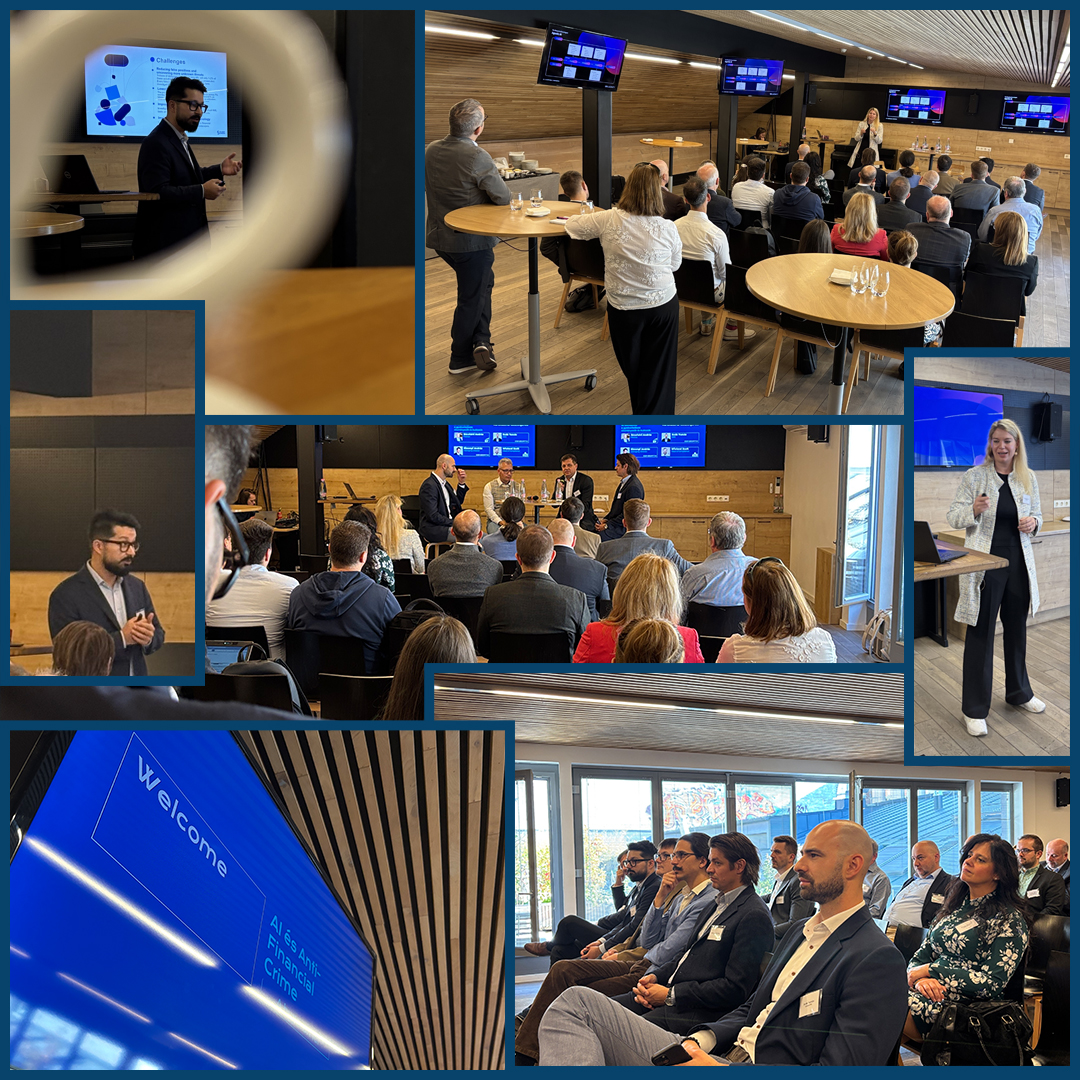AI and Anti-Financial Crime – Beyond the Hype
On October 29, Consortix hosted an inspiring morning event at the Budapest Music Center titled “AI and Anti-Financial Crime – Beyond the Hype.” The session brought together professionals from leading Hungarian financial institutions who work every day to protect their organizations from money laundering and other financial crimes. Executives and investigators alike joined the conversation, united by a shared interest in understanding how artificial intelligence can genuinely transform compliance and AML operations.
The discussions focused on real-life applications rather than futuristic promises. The atmosphere was both professional and open, with participants eager to exchange ideas about how AI can make their work faster, smarter, and more effective.
Turning AI Hype into Practical Value
The event began with a presentation by Mihai Gaicu, Global Industry Consultant, Risk, Fraud and Compliance at SAS, who explored the practical side of AI in financial crime prevention. He described how the industry is moving from traditional rule-based systems and manual reviews to solutions that rely on automated anomaly detection, predictive analytics, and real-time monitoring. Mihai emphasized that the first and most critical step toward AI-driven AML is ensuring high-quality data. Without it, even the most advanced model will fail. From that foundation, he outlined a gradual maturity journey that starts with building behavioral models, continues with automated triage, and culminates in machine-learning-based detection. Each stage builds on the previous one, and success depends on not rushing the process.
Through real examples, he demonstrated how AI technologies can reduce false positives, improve conversion rates for suspicious activity reports, and free up investigators to focus on genuine risks.
His central message was that AI’s purpose is not to replace people but to strengthen their judgment with better insights and faster decision-making.
From Automation to Agency
Theresa Bercich, CPO and CO-Founder at Lucinity followed with a presentation that introduced the idea of agentic AI and showed how this approach is changing financial crime investigations. She explained that while simple automation can execute fixed tasks and copilots can assist analysts with suggestions, agentic AI takes a more proactive role. It can plan, reason, and act toward defined goals while remaining within safe and transparent boundaries.
Theresa illustrated these concepts with the example of Lucinity’s Luci AI. Luci supports investigators by completing analysis and reporting tasks that used to take hours in only a few minutes. It operates through structured, auditable workflows that maintain full visibility and control. Every output is based on verified case data, so users can always trace back the reasoning behind an AI-generated insight. In this way, Luci represents a balance between automation and accountability, combining efficiency with the assurance required in a regulated industry.
A Conversation About Trust and the Future
The closing panel brought together András Bácsfalvi, Parter at Ernst&Young, Zsolt Wieland, Head of Compliance at K&H, András Simonyi, General Manager at Consortix and Tamás Sváb, CEO of Consortix. Their discussion revolved around one key idea: trust in AI is still developing, yet choosing not to adopt it is no longer an option. The participants agreed that the focus must remain on data quality, since models are only as reliable as the information they are built on. Poor or incomplete data can lead to biased or misleading results, an issue already seen with large language models.
Reflecting on the session, András Simonyi noted that the conversation went beyond trends and buzzwords. It looked at how compliance has evolved and where it is heading next in the age of AI. Tamás Sváb added that real success with AI requires persistence, experimentation, and patience. Many initiatives fail because teams expect quick wins, while in reality, valuable results often emerge only after one or two years of learning and iteration. He also emphasized that both the quality and the quantity of data are essential for improving AML detection, and that human leadership remains irreplaceable. AI should accelerate investigations, not substitute the people who guide them.
Moving Beyond the Hype
The morning at the Budapest Music Center showed that the conversation about AI in compliance has matured. It is no longer about abstract possibilities but about practical steps, measurable outcomes, and responsible implementation. The participants left with a sense of optimism, recognizing that while trust in AI must be earned, the technology already offers tangible ways to make financial crime prevention more efficient, more insightful, and ultimately more human.






